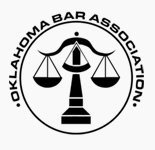Many people have debts but are able to make payment arrangements with their creditors. If not, the courts have to intervene and order a levy or wage garnishment. If this court order is causing you financial hardship, you may be eligible to request a release in Texas.
What if a levy is causing you hardship?
Wage garnishment occurs when your wages are garnished through a court order initiated by a creditor. A levy is the seizure of your property to pay off a tax debt. This process is legal when you owe a debt and fail to fulfill the terms of a contract. The creditor has the legal right to file a lawsuit against you, resulting in a judgement that involves the seizure of your income or property.
Since the process is entirely legal, you may assume that you cannot stop it. However, if a wage garnishment on your bank account is resulting in considerable hardship, you may request to terminate the process under certain circumstances.
Requirements to stop a levy
Your first step is to contact the IRS immediately to discuss your finances. Collect evidence that a legal procedure is causing hardship in the form of bank statements, bills and other valid financial documents. The IRS should recognize that a hardship is present if the levy makes it difficult or impossible for you to cover basic living expenses.
Who do you call?
Many people think that working with the IRS is nonnegotiable, but it’s possible to negotiate a deal under the right circumstances. This agency forces taxpayers to pay off their debts but not if it’s causing them financial distress. In some cases, a wage garnishment places tremendous financial pressure on the debtor. You may be able to release a tax debt after contacting a tax lawyer to assist you with the negotiation process.












